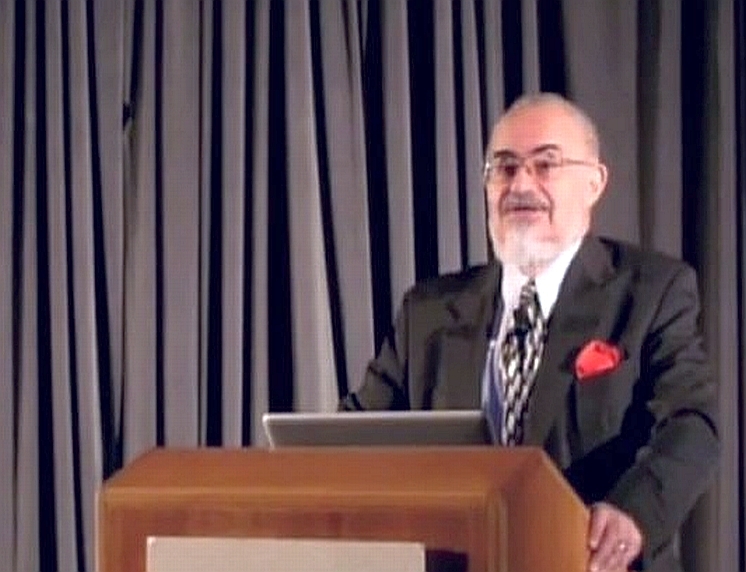"No
UFOs have ever landed, no-one's been abducted - it's all bollocks!"
Brian Cox on the Rob Brydon Show, BBC
When I give a talk about UFOs or merely mention them in conversation,
I can virtually be certain of a sceptical - if not downright hostile
- audience, chiefly based upon the way the subject is treated on TV
and by the press. There has been a wave of primetime documentaries over
the past couple of years: with a single exception these have been hosted
or introduced by comedians or lightweight presenters such as Julia Bradbury,
Ben Shephard, Andrew Maxwell and Mark Williams. Almost without fail
the subject is treated in a dismissive and comedic fashion and the content
generally focuses on the more bizarre and barely credible accounts of
obvious attention seekers. ( 'I've had a ten year romance with a blond
humanoid from Venus' or 'I can speak seven extraterrestrial languages
fluently and communicate by means of this coat hanger on my head' )
When public figures are persuaded to share their enthusiasm for the
topic in a documentary, they tend to be treated badly, with post-production
commentary that makes light of their beliefs or even holds them up for
ridicule (eg: Shaun Ryder and Danny Dyer) I have often felt that as
a society, we are becoming increasingly trusting of experts:
* We queued up at our local surgery for an untested (and, in the case
of Swine Flu, it transpired, ineffective) vaccine that, we were assured
would protect us from a threat that in any event failed to materialise.
* We monitor our family's carbon footprint and worry that our high-wattage
vacuum cleaner is going to contribute to the melting of the polar caps.
We accept any level of extra taxation and loss of choice / personal
freedom in the interest of slowing down climate change or some other
imagined future apocalyptic event.
* We accept without demur any new research that proves that basic foods
such as eggs, cheese, butter are bad for us, that items we are encouraged
to purchase by high-power advertising (fast food, sweets, sugary 'energy'
drinks) are responsible for the so-called obesity & diabetes epidemics,
only to be thrown into confusion when a couple of years later we are
told they are, in fact, good for us! Remember Edwina Curry?
* We concede that driving a car above 70 mph is an anti-social criminal
offence, despite the vastly improved brakes, suspension and safety features
of modern vehicles.
* One expert tells us fossil micro-organisms have definitely been discovered
in a meteorite from Mars. A year later, another - working for the same
organisation - says the observed structures are inorganic.
 |
Why do we accept all these restraints and changes to our way of life?
Because an expert said so! When I was following a degree course in Astronomy
(not that long in the past!) the idea that planets might be found orbiting
distant stars was considered ridiculous. The expert opinion was that
our detection systems would never be up to the task, and that our Solar
System might, in any case, be, if not unique, then at least a very rare
occurrence. Now, of course, hundreds of such new worlds have been catalogued:
it surely cannot be long until the experts begin to look for - and perhaps
discover - evidence of carbon-based life forms on the more Earth-like
of these planets.
This piece is headed by a quote from a current icon of Science broadcasting:
Dr Brian Cox.
Like all of us, he is, of course, entitled to his private opinion. But
does his background in particle physics
give him a mandate to make statements like that above? He has been similarly
casually offensive about those who question the Apollo Moonlandings:
again, is he an expert in Exobiology? Astronautics? Has he researched
the UFO phenomenon with anything approaching rigour? Has he spoken to
some of the thousands of credible witnesses such as Astronauts, military
personnel, police officers, air traffic controllers who have had personal
experiences? Why is his opinion more valid that that of Stanton
Friedman, the American Ufolgist and nuclear physicist? Could
it be that his bigoted approach fits some BBC profile?
 |
It really does seem that any dissenter who puts his head above the parapet
soon disappears from our screens (For example, David Bellamy and Nigel
Calder)
To round this off, I'd just like to suggest that we all begin to think
very carefully about whom we trust and what we decide to believe. There
is no sell-by date on the truth and we should be wary of up and coming
experts in any field who will espouse - and promote - any new idea,
as part of their attempt to achieve recognition. If this includes following
the established line of ridicule for contentious areas like the UFO
phenomenon, that seems to be a price easily paid. Fundamentally: if
you know you have seen something in the sky that defies any easy rational
explanation, don't be fobbed off by a self-proclaimed expert: and do
remember, lighthouses in the real world don't fly around the fields
of East Suffolk, whatever someone tries to tell you!


